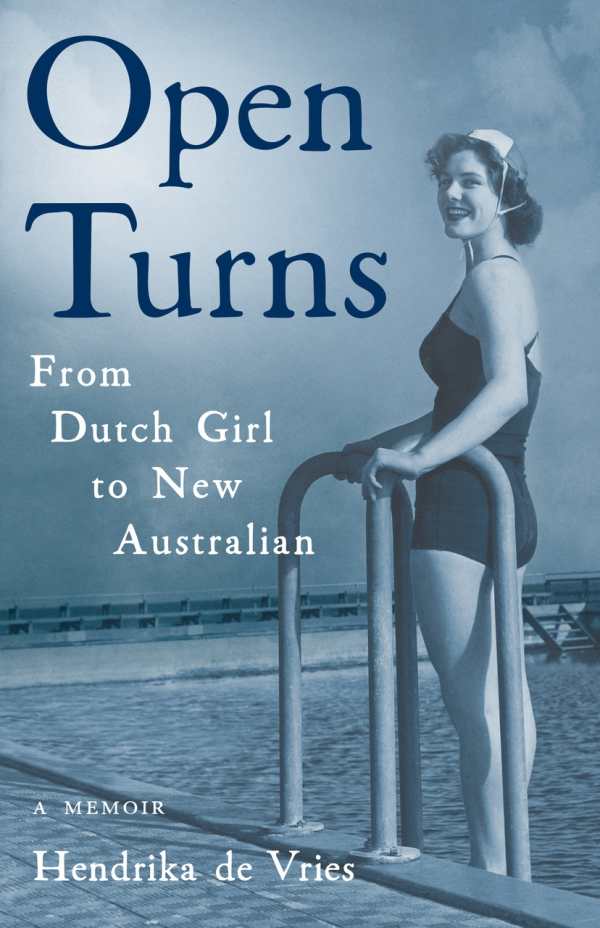Open Turns
From Dutch Girl to New Australian
Triumphs do not come in the form a young immigrant expected in the nuanced memoir Open Turns.
Hendrika de Vries’s moving memoir Open Turns is about facing postwar displacement and discrimination in Australia.
In war-torn Amsterdam, De Vries’s childhood was marked by violence, starvation, and strife. During her father’s stay in a prisoner-of-war camp, her mother, who was active in the resistance against the Nazis, struggled to care for their family. To better their prospects and escape a fractured postwar Amsterdam, the family emigrated to Australia when De Vries was thirteen.
In the memoir’s opening section, De Vries describes the prejudice, financial insecurity, and loneliness her family faced in their first years in the Outback. While De Vries was thrilled to return to city life when her family moved to Adelaide a year later, the move also forced her to acclimate to yet another new community. However, in Adelaide, she found joy in competitive swimming, winning state titles and swimming beside Olympians. Over the next decade, she began to make a life for herself in Australia, completing business school, making lifelong friends, and finding romance and a successful career as a secretary. In time, she achieved her childhood dream of working in a newsroom, contending with sexist social norms and anti-immigrant prejudice to do so.
About carving out a home in the face of unexpected challenges, this is an inspiring memoir whose prose is marked by wit, charm, and humor. The narrative is told through immersive vignettes from the point of view of De Vries’s adolescent self that highlight her individuality and resilience. In an early scene, De Vries recounts her first day of school in Australia, when her vivid description of the flying fish she saw on her journey from Amsterdam was met with disbelief and condescension from her classmates. Rather than permit further humiliations, De Vries decided to complete advanced coursework via mail from a high school nearby, furthering her education on her own terms.
By focusing on small moments from De Vries’s childhood that changed the course of her life, the book honors the nuance and texture of everyday experiences. Further, it portrays her adolescent concerns with respect, interspersing them with rear-gazing insights from De Vries’s adult perspective. She felt uncertain, lost, and confused in her youth, and this disorientation is placed in the compelling context of her immigrant experiences for greater nuance.
Ending with De Vries’s choice to emigrate yet again to build a new life with her husband in the US, the book’s conclusion is optimistic. It includes a lyrical ode to Australia and the experiences and people that enriched her life there. In a call back to an earlier sequence in which the spirit of Australia spoke to De Vries in a dream, a powerful message is delivered to other women: “You have not yet become the woman you will be. There is more to be discovered. Do not be afraid.”
An affecting and powerful coming-of-age memoir, Open Turns is about an immigrant finding a place to call home a world away from where she began.
Reviewed by
Bella Moses
Disclosure: This article is not an endorsement, but a review. The publisher of this book provided free copies of the book and paid a small fee to have their book reviewed by a professional reviewer. Foreword Reviews and Clarion Reviews make no guarantee that the publisher will receive a positive review. Foreword Magazine, Inc. is disclosing this in accordance with the Federal Trade Commission’s 16 CFR, Part 255.

